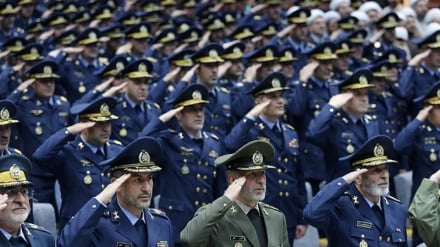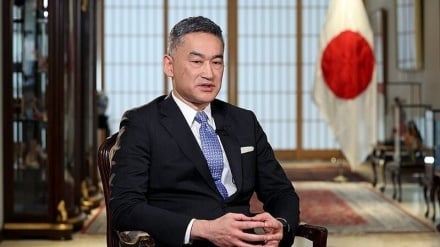Korea-Japan: History is not present in the past
South Korea-Japan bilateral relations are now at probably their lowest point since diplomatic ties were established between the two Northeast Asian countries in 1965. The latest dispute revolves around the two countries’ different interpretations of their 1965 “Agreement on the Settlement of Problems Concerning Property and Claims and on Economic Cooperation.”
The following is an interesting article which appeared on the Asia Times website, titled, “Korea-Japan: History is not present in the past”, by Singapore based university professor, Dr. Bhubhindar Singh.
From Japan’s perspective, the 1965 Agreement meant that all problems concerning claims between the two countries and their nationals were confirmed to be “settled completely and finally.” Japan had given US$300 million in grants and $200 million in loans to South Korea as a result of the 1965 Agreement.
However, from South Korea’s perspective at the present time, the 1965 Agreement did not include the right of South Korean forced laborers to claim compensation for psychological suffering against Japanese companies during Japanese colonial rule over the Korean Peninsula. A 2018 South Korean Supreme Court ruling concluded that South Korean forced laborers are still able to seek individual compensation from Japanese companies.
Not surprisingly, Japan sees this Supreme Court ruling as a clear violation of the 1965 Agreement. In Japan’s view, not only has South Korea unilaterally abrogated the pledges made by the two governments from the 1965 Agreement, but South Korea has also breached international law.
In Tokyo’s memory of events, it had been willing to make payments to South Korean individuals during the negotiations for the 1965 Agreement, but South Korea had asserted that it was putting forward the claims as a state – which would have meant that the South Korean government would have been responsible for payments made to its affected citizens.
South Korea obviously sees things differently. From its current perspective, the South Korean government’s acknowledgement of the South Korean Supreme Court’s decision did not mean that the government had abrogated the 1965 Agreement.
The Seoul government views the current bad state of bilateral relations as Japan’s fault, because, in Seoul’s view, Japan’s export restrictions to South Korea, which kick-started the deterioration of the bilateral relations, are actually meant to punish South Korea for its Supreme Court ruling. South Korea’s view is that these two issues should not be linked and that Japan is merely using the ruling as an excuse to disrupt the South Korea’s semiconductors industry.
In the ensuing escalation, both Japan and South Korea took what in their own eyes were justified responses to the other’s unjustified actions.
South Korea decided not to renew a military intelligence-sharing agreement with Japan known as the “General Security of Military Information Agreement” (GSOMIA) because, it argued, it cannot trust Japan to handle such sensitive intelligence when Japan itself does not trust South Korea.
Japan’s view is that South Korea has linked the GSOMIA decision to Japan’s update of its licensing polices and procedure for exports – wrongly so, since these two issues are completely unrelated.
Many reasons have been cited to explain the present dismal state of Japan-South Korea relations. It is clear that perceptions of the 1965 Agreement have evolved since the time it was signed, particularly over the past few decades.
What is important to note is that the 1965 Agreement was signed by a South Korean authoritarian government led by then-President Park Chung-hee. At that time, South Korea was still recovering from the devastation of the Korean War and its primary focus was rapid economic development.
Japan asserts that the South Korean government at that time was responsible for using the grants and loans given to it for any and all payments and distributions within South Korea.
Japan’s view is that the South Korea government should have distributed the payments to forced laborers, but did not do so, instead spending the money on economic development.
Japan is therefore displeased that even though the compensation figures had been carefully calculated by both governments at that time (as shown by documents released during the Roh Moo-hyun administration), South Korea continues to ask for compensation for its forced laborers.
Since then, South Korea has also experienced the 1987 democratization. This significant development, together with the emergence of the post-Cold War normative structure that lifted the lid on questioning historical issues, resulted in the “return of history” to South Korean domestic politics, which affected relations with Japan.
This was especially the case with progressive governments in South Korea in the post-Cold War period – such as the present Moon Jae-in government – which have led efforts to undo what was done or agreed upon in the past by conservative South Korean governments with Japan.
Some in South Korea still consider the Park Chung-hee administration to have been an illegitimate one and argue that agreements signed by the Park administration should likewise be considered illegitimate.
These clashing interpretations of history in fact follow a discernible trend. Whenever there is a progressive government in power, the questioning of history tends to be higher compared with periods when conservative governments are in power.
Currently, with a conservative government in Japan and a progressive government in South Korea, it is no coincidence that bilateral relations have dipped significantly due to clashes over historical issues.
While the bilateral relationship is hamstrung by the history dispute, the strategic uncertainties faced by the two countries have worsened
Both states should realize that strong bilateral cooperation is important for stability in East Asia. Cooperation is absolutely critical in addressing the North Korean nuclear and ballistic missile threats – particularly as regards intelligence sharing on North Korean missile flight trajectories.
History is often divisive. This dispute between South Korea and Japan shows that history is not present in the past and it is in fact something that continues to be viewed through different lenses at various junctions of a state’s own evolution.
It is unlikely that South Korea and Japan will be able to come to a common interpretation of all aspects of the 1965 Agreement. Neither is it likely that either state will make the first move to reverse any of the decisions it has taken over the past few months on export restrictions or military intelligence-sharing.
This is unfortunate. Seoul and Tokyo should recognize the strategic importance of strong bilateral cooperation to ensure stability in both national and regional security.
SS/ME


